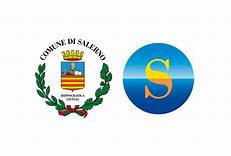Top 10 Tips for Pursuing Lifelong Learning With an Informal Lens
Strategies and techniques are provided for developing skills to question, inquire, and problem solve for preserving continuous self-motivation to learn.
The top 10 tips for pursuing lifelong learning focus on ways you can continue education through informal learning experiences, as opposed to attending formal class settings. Why this approach? Enrolling in formal continuing education courses and classes is difficult at times, considering life’s tugs and pulls by everyday commitments. These obligations are why informal learning methods offer a viable option for continuing your education.
Taking ownership of lifelong learning is necessary to ensure a continued investment in career skills or personal interests. Why? The benefits for continual learning offer opportunity for economic and personal rewards. These rewards are a result of gaining new knowledge for handling changes required in career skills and leading a satisfying life style. The top 10 tips discussed below are designed to help you achieve success in reaching professional and personal goals.
Create a Learning Network: Professional and Personal
Creating a professional and personal learning network is the beginning step in pursuing lifelong learning. The following are tips for successful informal learning strategies using online tools for developing these two learning networks.
- Join Organizations – joining professional or community organizations provide a wide variety of opportunities to learn from others in informal settings. Joining these types of organizations put you in touch with people who are interested in learning, just like you. Beyond conferences and meetings there are chances to befriend others who want to share their knowledge and experiences, along with gaining new knowledge.
- Professional Networking – use Linkedin to engage in discussions with others regarding the current trends and issues within your career field. Joining Linkedin groups related to your career field offer the opportunity to engage in informal online discussions with others regarding skills employers view as significant for the future.
- Social Networking – use Facebook or Twitter to make connections with people who offer differing opinions and views, along with those with similar beliefs. This provides an informal method of learning, along with remaining open minded about the diverging thought processes of people. Understanding opposing viewpoints is integral to professional and personal growth.
- Google Reader – use this or similar RSS reader service to follow the latest news in your career field and personal interests. Creating a home page using iGoogle or Pageflakes eases the process of personalizing an informal learning network, by providing a place for this information to aggregate. This network may include news, blogs, videos, photos, podcasts, applications, and tools for professional or personal growth.
Self-Directed Learning: Becoming an Effective Learner
Why is self-directed learning important? You become a more effective learner through advanced decision making processes, researching resources, and developing the inner drive to succeed. The following are tips for pursuing additional education through self-directed learning.
- Create an Informal Learning Plan – creating a lifelong learning plan for learning, forces you make decisions regarding the optimum approach for continual lifelong learning based on needs. A well thought out plan also identifies resources, strategies, and goals for succeeding.
- Read Professional Journals or Books – the information contained within is written by professionals and provide insights into the latest research, trends, and issues affecting your career. Find time, even if it’s only a few minutes each day, to read.
Read Quality Magazines or Books – these sources of information not only provide the opportunity to gain new knowledge; they also help with improving reading comprehension and writing skills. Read “how to” and self-improvement books to learn new work skills or information on things of interest. - Determine Your Learning Style – everyone has their own way of learning new things. Some people are visual, auditory, musical, verbal, or logical learners. Taking a two minute learning style assessment will help create a self-directed learning plan tailored for your specific professional and personal needs or goals.
- Visit the Library – either the local public library or college library. These visits offer the opportunity to read quality materials which may be unavailable any other way. College libraries are a great resource for professional or personal reference materials. Most college libraries have an open door policy; however, only registered students may check out materials.
- Visit Museums – these informal learning settings offer a view into things, experiences, or facts you may know nothing about. These visits support the desire to learn something new for personal knowledge or life experiences.
Using these top 10 tips as a foundation in the pursuit of lifelong learning will assist meeting your short and long term professional and personal goals in life. Everyone has commitments which tend to make continuing education difficult to achieve. However, if you are considering a more proactive approach in professional or personal growth try any or all of these tips to reach your goals.
Sources
https://www.writeurl.com/text/rch6ceuse798997twhxl/ucy40kto36k1x0723isk
https://www.torah-haim.com/read-blog/4312_rn-or-lpn-what-039-s-the-difference.html
https://www.tinywebgallery.com/blog/forum/profile/robertschultz
https://www.satespace.com/read-blog/73921
https://www.rcampus.com/FSitehomeshellc.cfm?xsite=robertschultz
